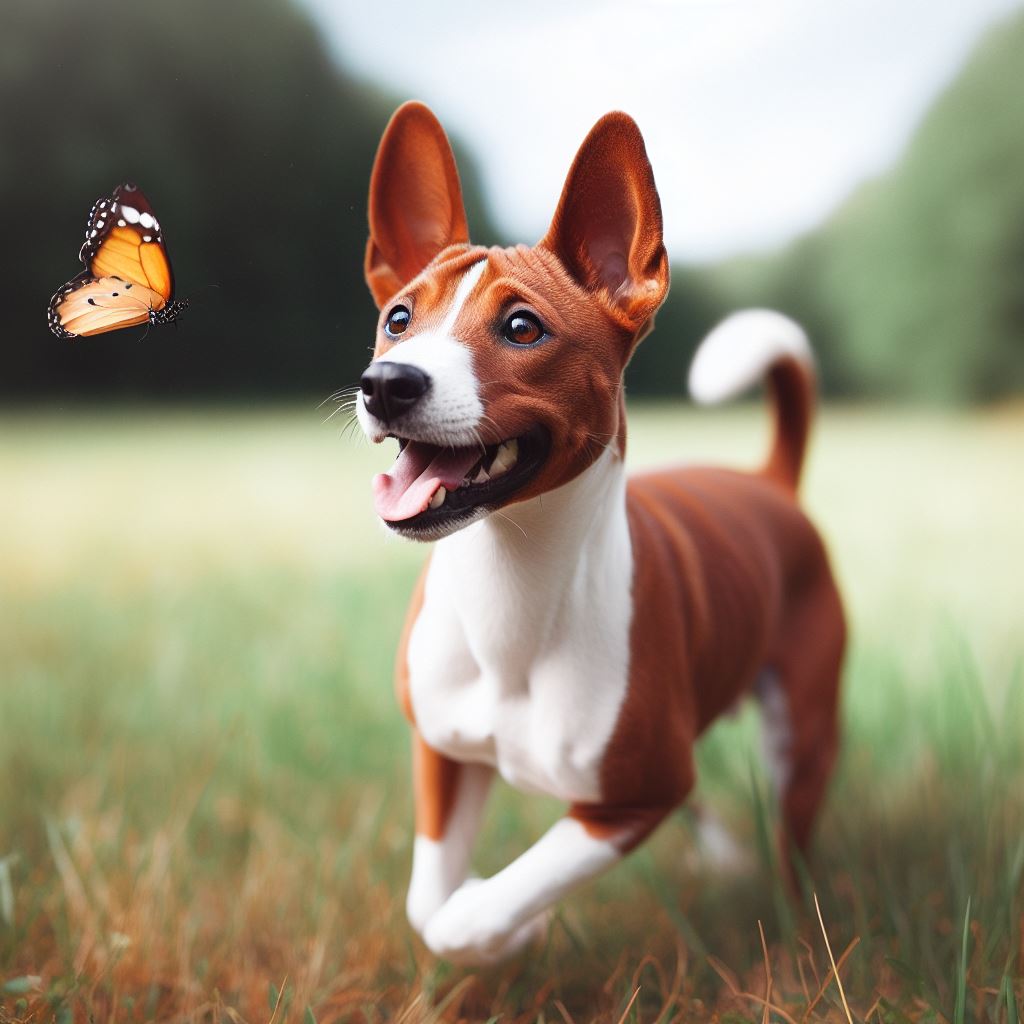The Basenji is a unique and interesting breed of dog known for its small to medium size, distinctive appearance, and intriguing behaviors. Here’s some key information about the Basenji:
- Origin: Basenjis are believed to be one of the oldest dog breeds in the world. They originated in Central Africa, specifically in regions of what are now the Democratic Republic of Congo, Sudan, and South Sudan. They were originally used for hunting small game, such as birds and small mammals.
- Appearance: Basenjis are small to medium-sized dogs with a sleek and elegant build. They have a short, fine coat that can come in various color combinations, including red, black, tricolor, or brindle. They have a distinctive wrinkle on their foreheads and erect, pointed ears.
- Barkless Dogs: Basenjis are often referred to as “barkless dogs” because they do not bark in the traditional sense. Instead, they make unique vocalizations that are often described as yodels, howls, or screams. They are known for their “baroos” and other vocal expressions.
- Intelligence: Basenjis are highly intelligent dogs, but they are also known for their independent and sometimes stubborn nature. Training a Basenji can be a bit challenging, as they tend to do things on their terms. Positive reinforcement training methods and patience are key when working with Basenjis.
- Temperament: Basenjis are alert, lively, and curious dogs. They can be affectionate with their families but may be reserved around strangers. They are known for their cat-like grooming habits, often seen cleaning themselves like a cat. They are clean dogs and have little to no doggy odor.
- Exercise: Basenjis are an active breed that requires regular exercise and mental stimulation to keep them happy. They enjoy activities such as running, playing, and exploring, and they do well in agility and obedience training.
- Health: Basenjis are generally a healthy breed, but they can be prone to certain genetic health issues like hip dysplasia, progressive retinal atrophy, and Fanconi syndrome. Responsible breeding practices and regular veterinary check-ups are important to maintain their health.
- Size: Adult Basenjis typically stand around 16 to 17 inches (41 to 43 cm) at the shoulder and weigh between 22 to 24 pounds (10 to 11 kg).
- Grooming: Basenjis have a short coat that requires minimal grooming. Regular brushing and occasional bathing are sufficient to keep their coat in good condition. Their tendency to groom themselves like cats helps maintain their cleanliness.
- Living Arrangements: Basenjis are adaptable and can live in various environments, including apartments, as long as they receive enough exercise and mental stimulation. They are sensitive to cold weather and may prefer warmer climates.
Basenjis are a unique and fascinating breed with their own set of characteristics and behaviors. While they can be a bit challenging to train due to their independent nature, they make great companions for individuals and families who can provide them with the exercise, mental stimulation, and love they need.
